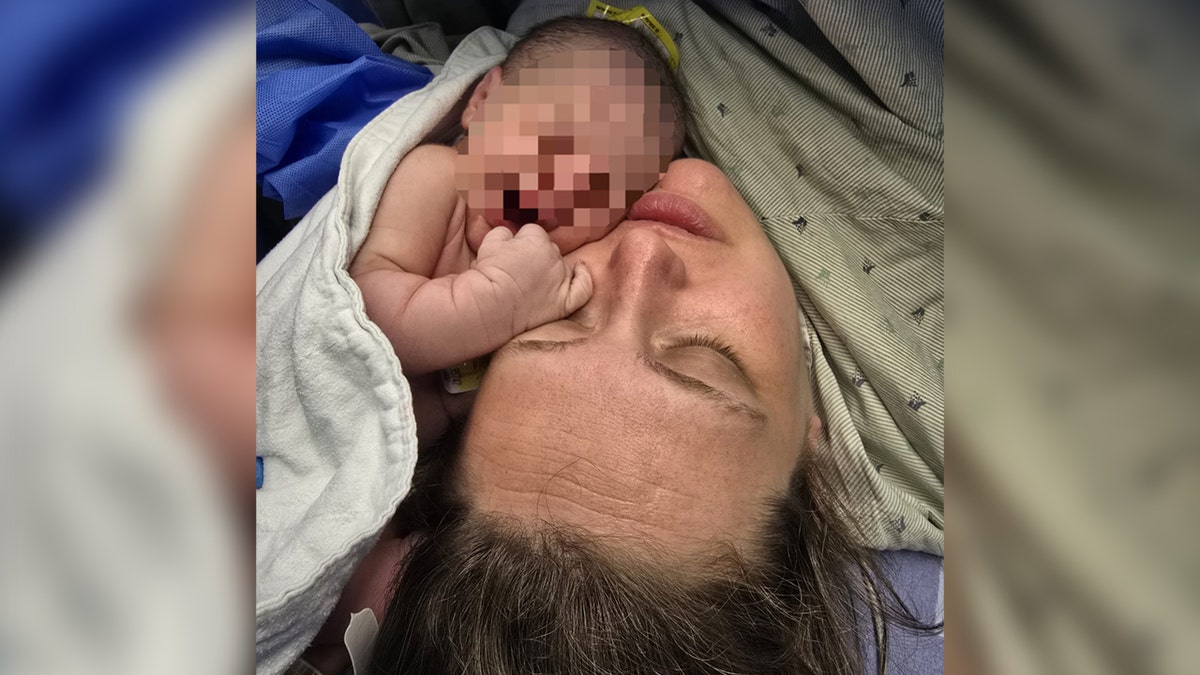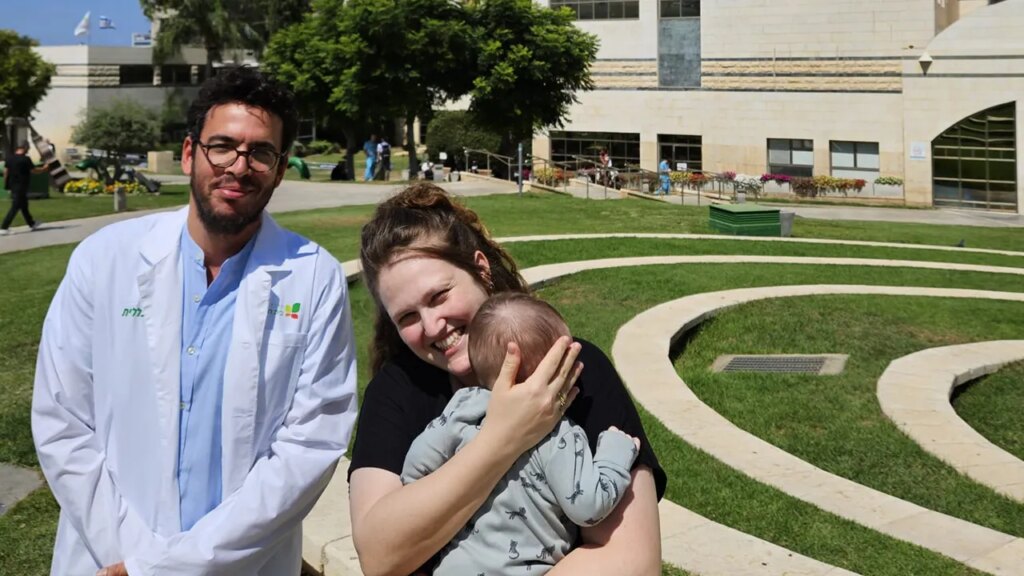NEWYou can now listen to Fox News articles!
On June 11, Hadas Levy became the first woman to give birth to a child fathered by a soldier killed in Israel’s war against Hamas in Gaza, sparked by the Oct. 7 massacre that claimed 1,200 lives.
Capt. (res.) Netanel Silberg, Levy’s fiancé, was killed in combat in Gaza in December 2023. The couple met on a blind date arranged by friends in May 2022.
“He was very handsome. He came to pick me up and waited for me outside his car, like a man from another era. He was tall — about 1.80 meters (approximately 5 feet, 11 inches) — well-built, and when he removed his glasses, he had the most beautiful green eyes. He was the whole package,” Levy told Fox News Digital.
ISRAELI SOLDIERS KILLED IN GAZA AFTER EXPLOSIVE DEVICE HITS THEIR VEHICLE
As the full extent of the Oct. 7 carnage emerged, Silberg answered the call to arms. Although his age and rank exempted him from serving in Gaza, he joined the first wave of soldiers deployed there.
“I kept telling him not to go, but he was restless. He went to pick up his army gear from his parents and said he would come back, but instead he went to the battlefield,” Levy recalled.
While on leave the following month, Silberg bought a ring and proposed.
“We got engaged around November, but we didn’t have a party. We never spoke about what I would do if something happened to him, because it wasn’t an option,” Levy said.
On Dec. 18, 2023, Silberg was killed in action.
“I was working that morning. I’m not a spiritual person, but I felt such intense nausea that I had to spit into a garbage can. I went home early, and it turned out the nausea struck at the same time he was killed,” Levy recalled.
Because the couple was not married, Levy received no official notification; she learned of Silberg’s death through a phone call from his mother. It was on that call when Levy asked his mother the question that would continue on his legacy.
“I just remember lying on the carpet and begging his mother on the phone to ask them to perform the procedure to collect Netanel’s sperm. She said yes immediately,” Levy said.
BODY OF ISRAELI HOSTAGE WHO WAS HELD FOR NEARLY 700 DAYS IN GAZA IS RECOVERED

The procedure of collecting the deceased male’s sperm, once rare, became common after Oct. 7, Dr. Eran Altman, director of the sperm bank and men’s infertility clinic at Rabin Medical Center–Beilinson Hospital, told Fox News Digital. The procedure is similar to one performed on infertile living men.
“In the week after Oct. 7, because of the mass killings, it took time to identify the bodies. We received them several days later and tried to retrieve sperm, but we found that after more than 72 hours, and usually after 48 hours, the sperm is no longer viable,” he said.
Since then, the Israeli army has become more efficient at transporting bodies quickly, ensuring casualties arrive in their uniforms and gear to avoid delaying the procedure.
The sperm is preserved in liquid nitrogen at –196 degrees Celsius, where it can remain viable for decades.
Previously, a court order was required to collect the samples from fallen soldiers. Since Oct. 7, the law has been temporarily amended: the procedure can now be performed without a court order, but the sperm cannot be used without one. Altman’s clinic at Rabin Medical Center–Beilinson Hospital collected eleven sperm samples from Silberg.
During shiva, the seven-day Jewish mourning period, Levy told Silberg’s mother that she would begin the process of conceiving using his samples.
“I felt like there was no life without him and that I couldn’t continue. I felt it was the only living thing that I could still get from him. I wanted something from him growing inside me,” Levy said.
ARMED FOR SURVIVAL: HOW OCT 7 HAMAS MASSACRE TRANSFORMED GUN CULTURE IN ISRAEL
Levy described the challenges of navigating her pregnancy without her partner. She said she had to take every test alone and explain his absence whenever asked about the father. With Netanel deceased, she was unable to undergo genetic screenings and often had to rely on his mother for information about his family.
In June, Levy gave birth to her son via C-section at Hadassah University Hospital on Mount Scopus in Jerusalem, where she had also undergone insemination accompanied by Dr. Efrat Esh-Broder from the IVF unit.
“I love him because he is who he is, not because he is his father’s son. I didn’t call him Netanel. He is not a gravestone,” she told Fox News Digital.
Three months later, her son has his father’s nose and ears. Levy said Silberg would have been upset, as he never liked his own features.
“We look at pictures of Netanel already. He needs to be proud of his dad, his dad’s story is one of bravery. He needs to know he has a dad and a family,” she said.
Levy is frequently approached by women seeking guidance on the process. In addition to her, around six other IDF widows are pursuing parenthood using sperm retrieved from their deceased husbands.
The IDF Widows and Orphans Organization (IDFWO) offers comprehensive support throughout the process, helping families navigate emotional, legal, and medical challenges.
“You must want the child for the child and not for his father who was killed. It’s something that is forgotten sometimes. The child can’t only be his father’s son, it’s not fair. To the girls who want to do it, I say do it. It’s continuity, it’s life and it’s amazing,” Levy said.
Read the full article here

